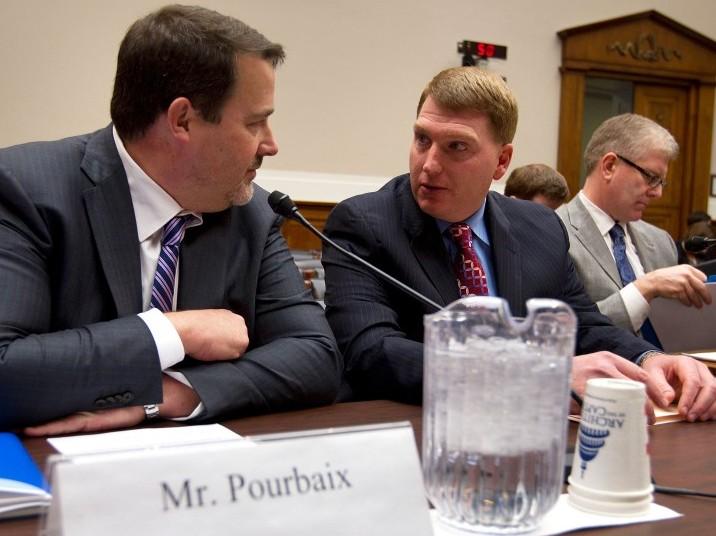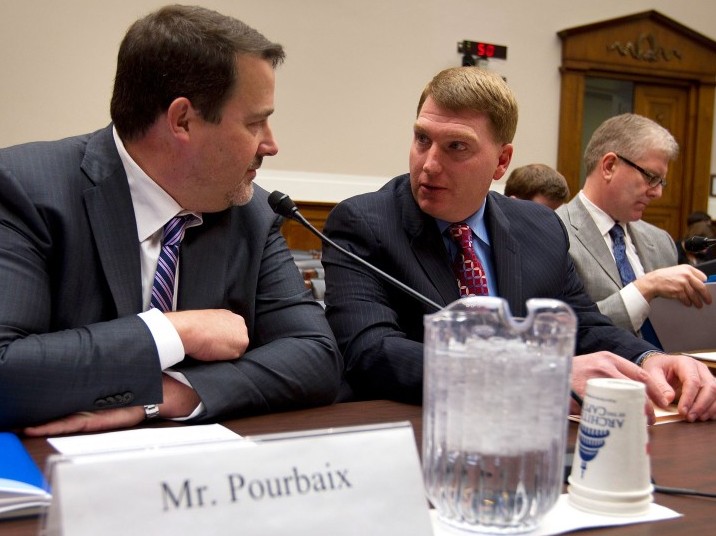The TransCanada Keystone Oil Pipeline looked as if it had reached a dead end last month when President Barack Obama rejected the project.
The project has suffered from delays, legislative changes, environmental questions, and political polarization. The issues seem far from being resolved.
Immediately following last months rejection Keystone XL builder TransCanada announced on its website that it is still committed to building the $7 billion project, and hopes to start before the end of 2015.
The company plans to reapply for the State Department permit and hopes the State Department will take into account a new environmental study.
After a November delay of the XL project by the White House, supporters of the project in Congress hurried to pass legislation that would force the State Department to issue or decline a permit for the project’s construction. This gave the administration 60 days to decide. The president announced his decision last month.
“Earlier today, I received the secretary of state’s recommendation on the pending application for the construction of the Keystone XL Pipeline,” said President Obama in a White House announcement. “As the State Department made clear last month, the rushed and arbitrary deadline insisted on by congressional Republicans prevented a full assessment of the pipeline’s impact, especially the health and safety of the American people, as well as our environment.
“As a result, the Secretary of State has recommended that the application be denied. And after reviewing the State Department’s report, I agree,” the president concluded.
House Republicans continue to stick up for the project despite the State Department rejection. According to a Feb. 16 press release from North Dakota Sen. John Hoeven, senators-including Dick Lugar (R-Ind.), David Vitter (R-La.), John Hoeven (R-N.D.), and 44 others-have proposed legislation authorizing the Keystone XL project as an amendment included in a highway transportation bill. The Senate is expected to vote on the bill soon.
“This new bill is a lot like the old one, but it makes it definitive that Congress has the authority to push the Keystone XL Pipeline forward,” said Vitter in a statement on Feb. 18.
“Here we have rising gas prices, putting a strain on our consumers, on business, on the economy, and yet the administration turns down a project that would help us reduce gasoline prices,” said Hoeven in his press release.
Environmentalists saw last month’s announcement as a victory. On Monday, Feb. 13, the Sierra Club-after a 24-hour petition drive-sent Sens. Harry Reid (D-Nev.) and Mitch McConnell (R-Ky.) over 500,000 messages from citizens rejecting the pipeline.
“Americans don’t want this oil, they don’t want this risk, and they don’t want this political circus,” said Sierra Club Executive Director Michael Brune in a statement. “The president stood up to Big Oil and rejected the Keystone XL tar sands pipeline. If Republicans in Congress were genuinely concerned about jobs they would have passed the jobs package last fall.
In a twist that may buoy pipeline supporters, University of Victoria scientists Andrew Weaver and Neil Swart recently published research in the publication Nature, which questions the “dirtiness” of oil sands emissions, claiming oil sands development may have less of an impact on global warming than previously thought. But Weaver, who himself is opposed to the Northern Gateway pipeline, emphasized “We’re not giving a get-out-of-jail-free card to the tar-sands industry. This is not the purpose of our study.”






